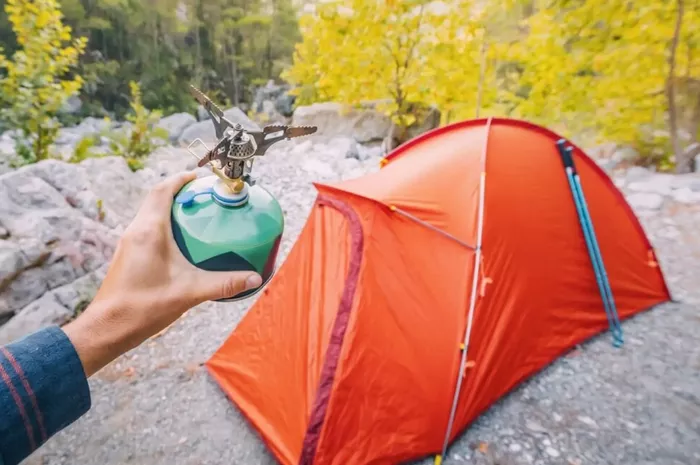Camping holidays are growing in popularity across France, drawing in nature lovers and outdoor adventurers who want to enjoy the freedom of sleeping under the stars. But while the idea of pitching a tent in the middle of a tranquil forest or beside a scenic trail may sound idyllic, the legal reality is far more complex. Not all areas are open to wild camping, and there are strict rules that campers need to follow.
The legality of camping outside designated campgrounds largely depends on how it’s done. A distinction is made between bivouacking—a minimal, temporary stopover often used by hikers and mountaineers—and camping, which involves setting up for a longer period, often with a larger tent or a vehicle like a campervan. Bivouacking typically means staying just one night with a small tent or no tent at all, while camping implies a more permanent or elaborate setup.
According to French law, specifically Article R111-32 of the Code de l’Urbanisme, pitching a tent for one or more nights in the countryside is legal as long as you have the landowner’s permission and there is no specific prohibition in that area. However, camping with a vehicle or staying for multiple days tends to be less tolerated. Campers must be particularly cautious of zones listed under Article R111-33, where both camping and bivouacking are outright banned.
These restricted zones include a range of sensitive or protected environments. Wild camping is forbidden on seashores, in listed or protected sites, in areas awaiting official classification, and within the visual perimeter of buildings designated as historic monuments. Additional bans apply in zones designated for the protection of architectural or landscape heritage, forests at high fire risk, and nature reserves such as national or regional parks. Wild camping is also not permitted within 200 meters of water sources used for public consumption or within 500 meters of designated historical landmarks.
Even within regional and national parks, rules vary considerably between locations and are often strictly defined in local bylaws. Some parks clearly differentiate between bivouacking and camping and only allow the former under specific conditions. For instance, in the Parc national de la Vanoise, both wild camping and bivouacking are banned entirely, except in areas near official refuges. In the Parc national des Cévennes, only bivouacking is permitted, with strict requirements: no motor vehicles, one-night stays only, a mandatory distance of 50 meters from marked trails, and use of minimal tents between 7 p.m. and 9 a.m. In the Parc National du Mercantour, bivouacking is allowed but only more than one hour’s walk into the park and within the same nighttime hours. Large tents, caravans, or shelters that allow you to stand are prohibited.
The website lecampingsauvage.fr offers a valuable resource for those looking to explore France’s wild areas responsibly. It lists park-specific regulations and includes a crowd-sourced map showing where wild camping or bivouacking is permitted. Campers are encouraged to use this map to plan their trips and avoid potential legal trouble.
Responsible behavior is also essential for preserving nature and avoiding fines. Wild campers and bivouackers should follow several golden rules: arrive late in the day and leave early in the morning, choose discreet locations, never light a fire unless absolutely necessary (and always extinguish it completely), leave no waste behind, and avoid sprawling campsites that disturb the natural environment. Respecting these principles helps maintain the ecological balance and reduces the risk of legal consequences.
And the consequences for breaking the rules can be severe. If you camp or bivouac in a prohibited nature reserve, you risk a third-class offense fine of up to €450 under Article R. 332-70 of the Code. For more serious infractions—such as pitching a tent within a listed or classified natural monument—you could face criminal charges under Article L. 341-19, with potential penalties of six months to two years in prison and fines ranging from €100,000 to €375,000.
These strict penalties highlight the contrast between France and other countries like Scotland or many in Scandinavia, where wild camping is far more accepted, particularly when campers are discreet, stay only one night, and leave no trace.
The renewed attention on wild camping regulations comes at a time when camping holidays are booming across France. National figures indicate that more people are choosing camping as a vacation option, and new rankings for the best campsites in the country were recently published by Pitchup.com as part of the Pitchup Review Awards 2024. These top-rated sites vary from basic amenities like toilets and showers to more luxurious options with pools, restaurants, family-friendly activities, and on-site shops.
Ultimately, while France offers breathtaking landscapes and diverse terrain ideal for camping, it also enforces strict regulations to preserve these natural and cultural treasures. Campers are encouraged to plan ahead, seek permission when necessary, respect local rules, and always leave nature as they found it. This way, the joys of outdoor exploration can be enjoyed safely and sustainably for years to come.
Related Topics
- Revolutionizing Outdoor Comfort: The TCEK 360-Degree High Back Camping Chair
- Tranquil Getaway: Elk Neck Campground Offers Scenic Coastal Camping in Maryland
- Chilly Start Doesn’t Deter Campers as UP Camping Season Begins

